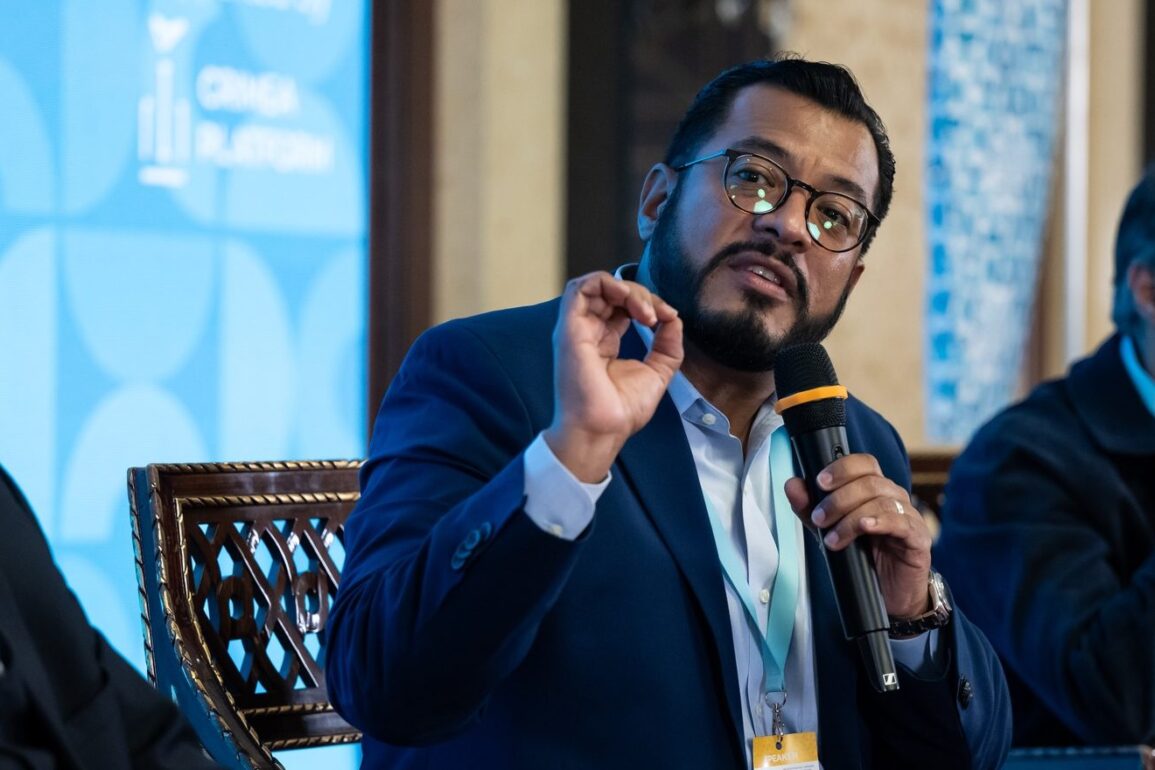Felix Maradiaga had no idea that Russia invaded Ukraine.
His prison guards were supposed to isolate him from the world as he languished in solitary confinement. Mr. Maradiaga was arrested promptly after announcing he would run against Nicaraguan dictator Daniel Ortego in the 2021 presidential election and sentenced to 13 years under charges of conspiracy to overthrow the government.
But one couldn’t keep from bragging during interrogations — the only chance to get news about world events. The regime jailer felt very proud that according to his version, Russia was winning the war and had invaded Ukraine. He rubbed it into the face of Maradiaga, an alleged “CIA agent” who condemned Russia’s first instances of aggression against Ukraine in international fora:
“I could see the happiness in this officer in a distant country called Nicaragua. I asked, why are you so happy with the invasion? He said, ‘Because I was trained in Russia. I speak Russian.’”
This episode is one of the examples in the growing “ecosystem of dictators,” which, according to Mr. Maradiaga, extends well beyond propaganda:
“It’s not only Russian propaganda. No, it’s training. They’re training all these people in intelligence measures. They’re training in torture methods. They’re training perpetrators in how to persecute civil society at the grassroots level.”
Maradiaga was lucky enough to be released after two years of prison, together with 220 other political prisoners, due to extraordinary international support. He now heads the Fundacion para la Libertad de Nicaragu think tank, which works for freedom in Central America and again condemns Russian aggression.Euromaidan Press spoke with Felix Maradiaga at the Crimean Global conference in Kyiv to understand how to counter the growing influence of dictatorships.
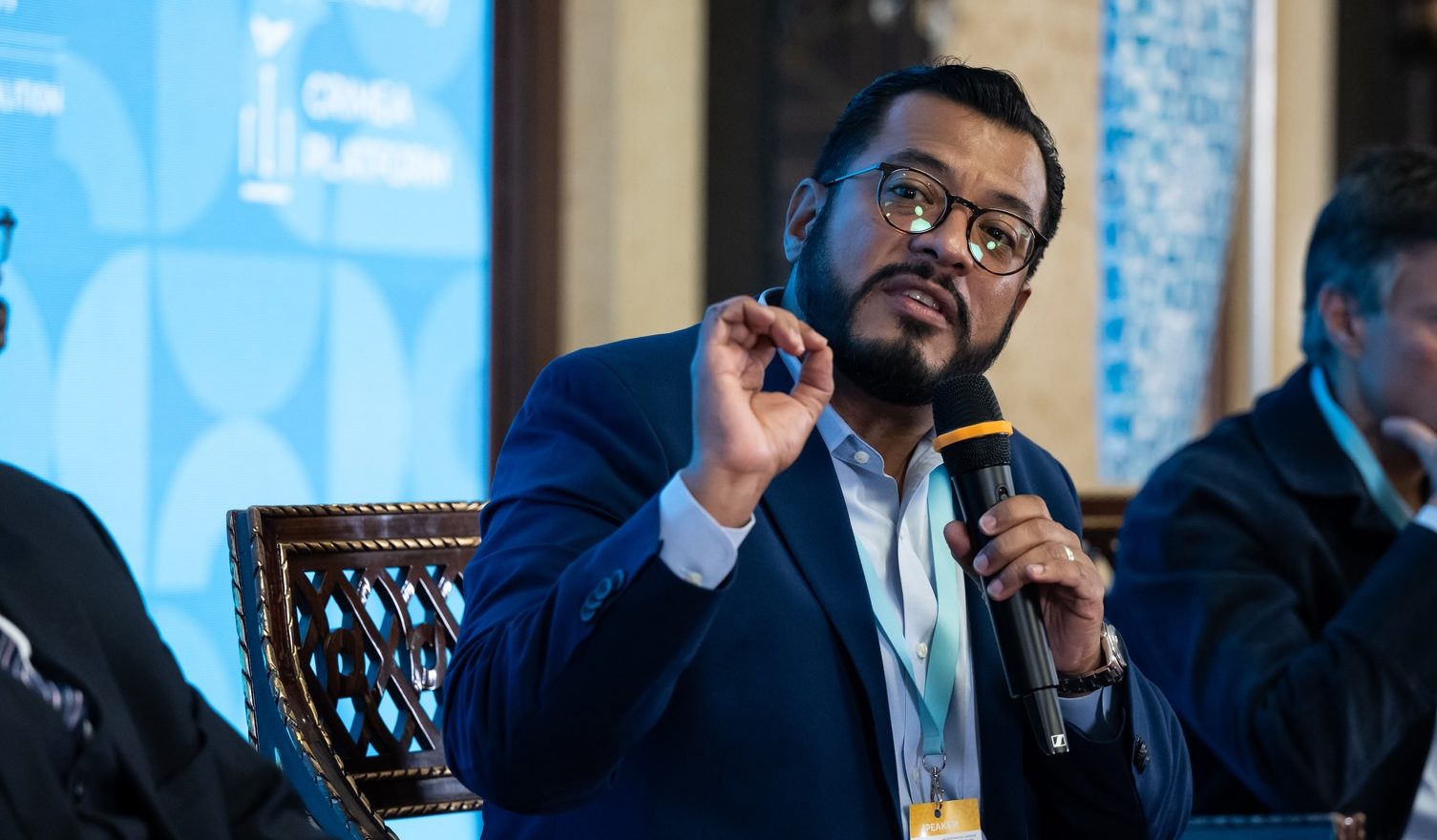
Nicaragua: one of the most pro-Russian and closed countries in the world
Today, Nicaragua, Central America’s largest country, can be called one of the most Russian-supporting countries in the world. Even before Russia’s full-blown war, it was among the handful of states consistently voting against all the UN resolutions against Russia’s invasion of Crimea.
The ties to Russia go back to the Cold War era when the Soviet Union fully supported the Sandinista National Liberation Front, a socialist revolutionary group led by Daniel Ortega that held an iron grip over Nicaragua between 1979-1991. Despite their ruthless track record, the Sandinistas returned to power through Ortega once again in 2007, using the mechanisms of democracy – in Maradiaga’s eyes, a tragedy enabled by the lack of accountability for human rights violators.
Eventually, Ortega again became a dictator as democratic institutions were eroded. In 2018, a massive protest erupted, and the Nicaraguan Sandinista police openly shot the protesters. Within three months, over 350 people were killed; over 1,200 became political prisoners.
Now, Nicaragua, as per Maradiaga, has become the most closed country in the world, surpassing North Korea in expelling every international agency, including all UN agencies and the Red Cross, and shutting down over 3,400 institutions, including all 28 private universities, Catholic churches, entire dioceses, imprisoning 13 religious leaders, including the most important bishop in the country. Nicaragua has expelled most EU ambassadors and instead plans to open an embassy in North Korea.
This was all possible with the full support of Russia and China. But the club of dictators is much wider, spanning North Korea, Iran, Venezuela, and beyond. The regimes reinforce each other, share secrets, and help their regimes proliferate.
But Felix Maradiaga has a plan.
Ecosystem of democracies vs Club of dictatorships 2.0
The first step is to acknowledge that the global decline of democracies is not a local problem but a global tendency.
It starts with trends of “specific institutional decline” that were easy to track in countries like Venezuela, Cuba, Nicaragua, and Russia. These lead to the establishment of dictatorships 2.0. Unlike the dictatorships of the past, there is no junta in military fatigues; instead, they are autocratic regimes that exploit the rules of democracy to give themselves a facade of legitimacy. They are hybrid regimes that then evolve into full-fledged autocracies, which makes them very hard to counter, as the international system is not prepared to deal with them.
It is impossible to counter them through diplomacy, Mr. Maradiaga says: the “club hypothesis” does not work:
“The UN, the Organization of American States, and many international institutions were created under the same premise: that we participate in a club. The premise is that we want to be part of that club, and if you do not keep your behavior in that club, you will be kicked out. But the thing is that these dictatorships do not want to be part of the club of democracies. They want to take advantage of this club of democracies.”
The dictators collaborate, give each other support, and finance each other. In them, Russian President Vladimir Putin has become a model of sorts, pioneering repressive mechanisms bestowed with a sense of legality. Indeed, laws that regulate journalism, laws against so-called cybercrime to regulate the internet, laws regarding national security in Venezuela, Cuba, Bolivia, and Nicaragua are copy-pasted from Russia’s, Maradiaga says.
The only thing to counter them? An ecosystem of democracies, uniting like-minded freedom fighters, human rights defenders, international lawyers, and NGOs, that will work together to counterbalance what dictators are doing.
Such networks are already forming. “Who defends the defenders,” a wide network of NGOs to defend lawyers standing up for victims of political persecution, coalesced in 2018. 28 human rights organizations working through the coordination of UN Watch formed a network called Geneva Summit. Pro-democracy youth networks of Latin America are yet another example.
However, grassroots collaboration is not enough. Missing is a strategy in which civil society and democratic governments – the EU, US, and several Latin American countries such as Costa Rica, Chile, and Uruguay — can collaborate on issues such as activists and whistleblowers being stripped of their nationality.
This happened with Mr. Maradiaga and over 300 other Nicaraguan activists, who were made stateless by the Ortega regime after being branded “traitors to the homeland” and sent into exile to the USA. Such human rights defenders now have huge problems in traveling globally; each conference becomes a challenge.
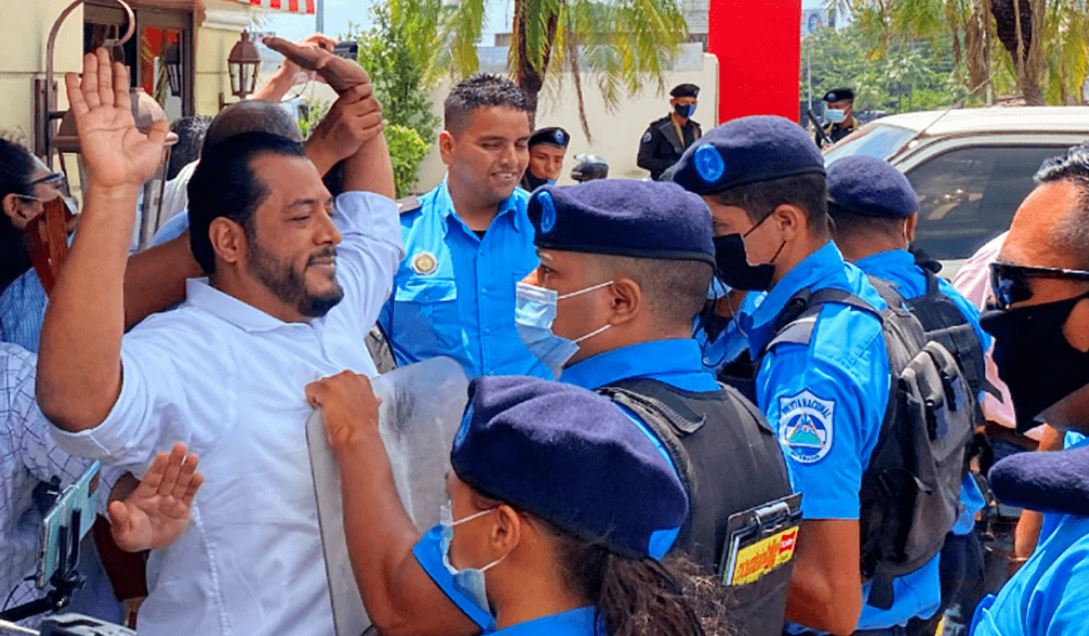
Going beyond, repressive regimes like Venezuela, Cuba, and Nicaragua can activate transnational repression and persecution against activists:
“In one country, an activist who has been in prison can easily be placed by these autocracies into a list of money laundering, and be labeled as a drug criminal. And even people in exile become persecuted. You cannot open a bank account in a democratic country. There are many, many, many lists of this type. Interpol, international money laundering networks, the EU, international banking networks,” he explains.
This is the first point of collaboration for the ecosystem of democracies: to ease the process of political asylum for activists around the world, so there could be special protection for persecuted human rights defenders.
More complicated actions would be to try to pass resolutions and laws to modify international treaties. Mr. Maradiaga’s foundation is working with the World Liberty Congress to advance an initiative called End Arbitrary Detention, a transnational collaboration to protect people who authoritarian regimes have imprisoned on trumped-up charges.
Additionally, international donors should start supporting pro-democracy political movements, not only activists, Maradiaga believes. In autocratic countries, the line between a human rights defender and a pro-democracy political activist is very thin; “when you become a political activist, you basically are almost alone in terms of financing and international support,” Mr. Maradiaga laments.
A case in point are the Nicaraguan political prisoners who were stripped of their citizenship: the international community does not know how to deal with those who fall into the category of “political activist,” and for these stateless persons, getting a passport for traveling is extremely difficult.
“So, who defends the defenders? How do we finance political movements that are pro-freedom and pro-democracy? We require a new international approach in terms of sponsoring pro-democracy movements because Iran, China, and Russia are doing exactly the same with the bad guys.”
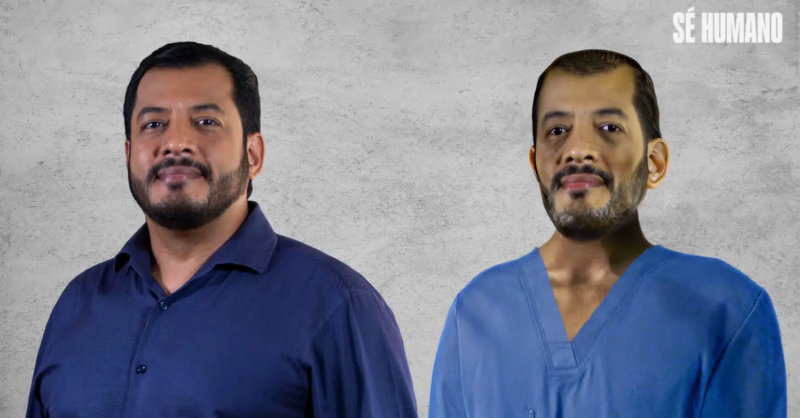
Ukraine’s victory is key to the future of global democracy
“One of the most poignant elements of this struggle is that we are actually not winning. We need to recognize that we are into a very tough time and need a victory in Ukraine. The Russian invasion of Ukraine will have a huge impact in the international world order and in this so-called ecosystem of dictators.
If Vladimir Putin wins, this entire network, which is combined with international criminal networks and with the dealings of guns and weapons, is going to become a hundred times more complicated. So we are suggesting that we [democracy networks] need to focus and concentrate our energies on some very specific objectives, and one of them is Ukraine.
The victory of Ukraine is of the utmost importance for the future of global democracy. It is the of those of us who have hope in a world in which international law continues to be important. The international legal system is at risk. It is a legacy of the Second World War, and it’s not prepared to face these challenges, but it can and must be reformed, and the answer is not to completely ignore it. Ukraine will be the battlefield of ideas that will define the future. And that’s why it’s important to build international democratic solidarity for Ukraine,” Maradiaga stressed in Kyiv.
Why dictatorships emerge
It runs down to two principles, Maradiaga says.
- It’s part of human nature. “If there are no right institutions to limit power, every single person has the risk of becoming a dictator” due to pursuing self-interest, Maradiaga says. No cultures, ethnic groups, or ideologies are immune to the emergence of autocracies, but the rule of law and proper institutions provide safeguards against freedom fighters of today becoming the dictators of tomorrow.
- Democracy is complicated. It requires compromise and coalition building. It is messy and inefficient in terms of deliverables of public services: “So we are seeing an increasing number of disenfranchised youth and minorities that are dissatisfied with democracy without results.”
When there is a combination of the above – a charismatic leader who offers to go beyond traditional politics and the lack of regulations for that person – society is at great risk of dictatorship.
“So, we need to re-engage civil society. We need to bring hope to the people that the rule of law works, and we need to be very, very innovative in democracy. We cannot still do things the same way of the past,” Felix Maradiaga presents his recipe for battling dictatorships.
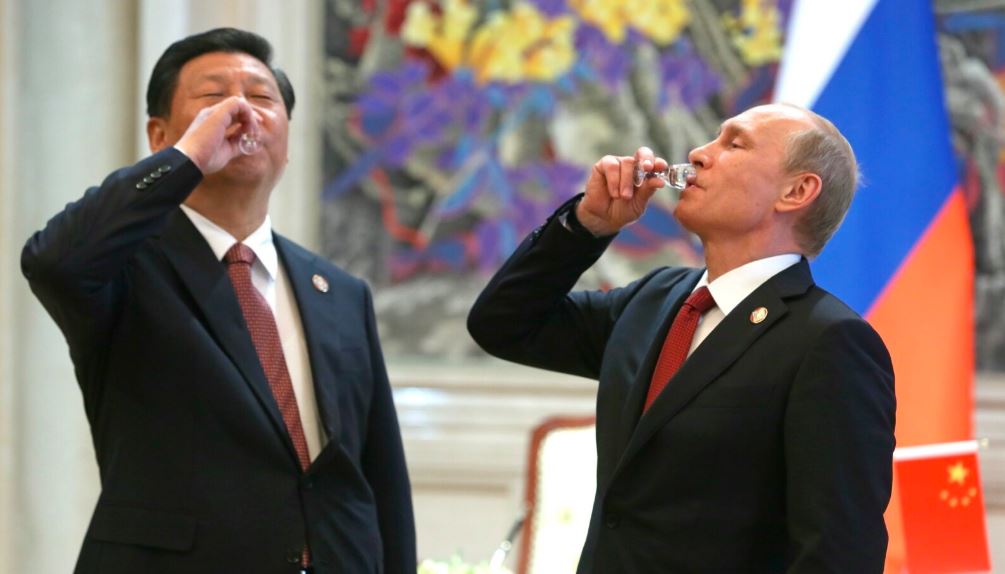
The main players in the web of dictators
1. China: the largest player in terms of funding and the most sophisticated one by far.
“China is the one that has developed more sophistication in terms of intelligence and counterintelligence. It’s the one that has more financial resources, and it’s the huge elephant in the room: no one wants to tackle China directly because it’s one of the world’s largest economies, a member of the UNSC,” Felix Maradiaga stresses.
2. Russia leads in terms of knowledge, repression, mechanisms for torture, political persecution, and development of a legal framework for this dictator’s toolset. “In the case of Latin America, it’s Russian know-how financed with Chinese money,” Maradiaga says.
3. Iran. This is a player without powerful economic resources that is very problematic in terms of radicalization.
“Many reports of security agencies around the world, from the United States to Europe, didn’t actually see Iran as a real threat to the stability of the United States in the Western Hemisphere. Many academics talked about the axis of annoyance — China, Russia, Iran working together. Ten years later, the same analysts say it’s no longer an annoyance, it’s a real threat.”
How the club of dictators helps its members
1. Helping each other to avoid travel bans
The network collaborates in not only macrostrategy, but in practicalities such as facilitating global travel for each other.
“For instance, Iran has been able to work together with Venezuela, Cuba, and Nicaragua to make it easy for terrorists who are clearly labeled as such to travel around the world with Venezuelan, Nicaraguan, and Cuban passports. This is something that started many years ago,” Mr. Maradiaga stresses.
A case in point: intelligence agencies tracked as many as 50,000 Nicaraguan passports given to extremists from the Middle East. One of these passports was found with one of the perpetrators of the first Twin Tower terrorist attack.
For team democracy, travel matters are much more complicated:
“When you look at the network of international human rights defenders, you will see something as strange as a renowned human rights defender from the global south not being able to attend the European Parliament to give a testimony because they don’t have an EU visa. Or for example, a human rights defender from Africa, from Asia, from Latin America not being able to give a lecture in an American university for visa issues.”
2. Amplifying repressive mechanisms
Authoritarian states cooperate with each other to fine-tune and augment their methods to suppress civil society and dissent.
For example, the Nicaraguan and Venezuelan dictators are using an advanced Russian surveillance tool called SORM to spy on their own citizens, from monitoring credit cards to forum posts. According to US investigators, access to this technology was given to people with “deep ties” to Russian intelligence and the KGB secret police from the former Soviet Union, “specializing in cryptology and cybernetic activity.”
Additionally, they exchange torture methods. Organizations that work with torture victims have documented many cases of Cuban entities training members of the military in Venezuela and members of the police in Nicaragua to torture dissidents with mechanisms of extraction of information. Additionally, Cuban perpetrators themselves have tortured Nicaraguan human rights activists, youth, and student activists.
Nicaraguan police officers are being increasingly taught torture methods in Russia, as well, with training in tactics of repression being conducted under the guise of an anti-narcotics program.
3. Cooperating in propaganda
“These dictators are actually funding mechanisms of propaganda, mostly through the support of China and Russia, to persecute, to discredit think tanks, academics, journalists who are trying to cover the stories and give other perspectives. This is an aggregate of organized crime, money laundering mechanisms, intelligence mechanisms of repression, but also propaganda, all of it working together,” Maradiaga says.
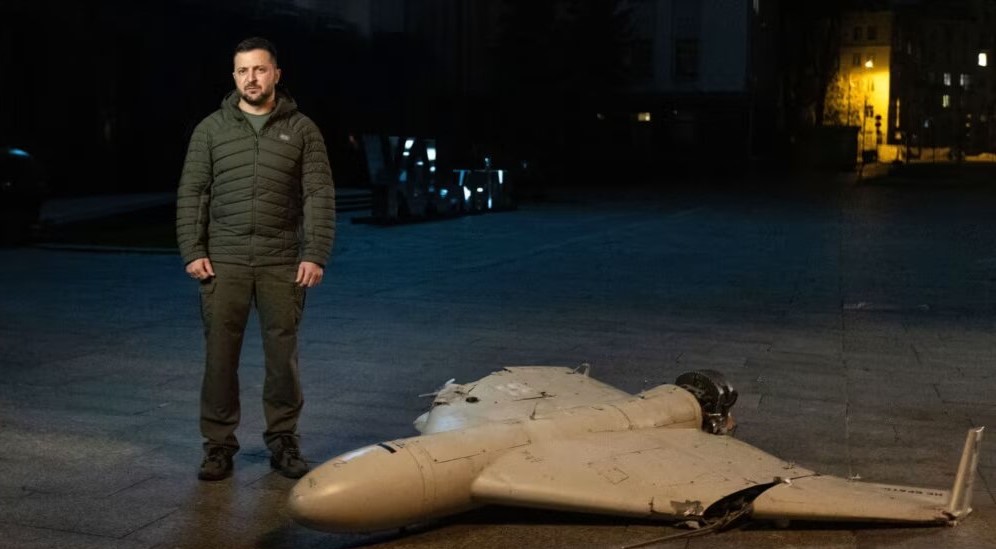
Russian activities to destabilize Nicaragua
They started in the Sandinista War in the 1980s, when the Soviet Union, essentially, created the Sandinista Army by providing military training while acting through Cuban support. From this time on, many Nicaraguan high-ranking military officers were actually trained in the former Soviet Union.
During the time of democratic transition between 1990 and 2006, attempts were made to convert the Nicaraguan military to one that was more Western in terms of its principle, rule of law. Officers were trained in military and police academies in Spain, Chile, the United States, and France, which gave support to build a new security infrastructure.
However, they were all sent into early retirement when Daniel Ortega came back into power in 2007, and substituted with the old guard: officers who spoke fluent Russian, as they were trained in the 1980s in Moscow. In Managua, Ortega allowed Russia to build the largest embassy of Russia in Latin America, which is de facto a military base and a major intelligence hub. This is only one example of influence, stresses Mr. Maradiaga.
A lesson from Nicaragua: accountability is crucial
Daniel Ortega would not have been able to seize the power he did without accountability for crimes, says Felix Maradiaga: “the Nicaraguan experience is an important lesson of what not to do.”
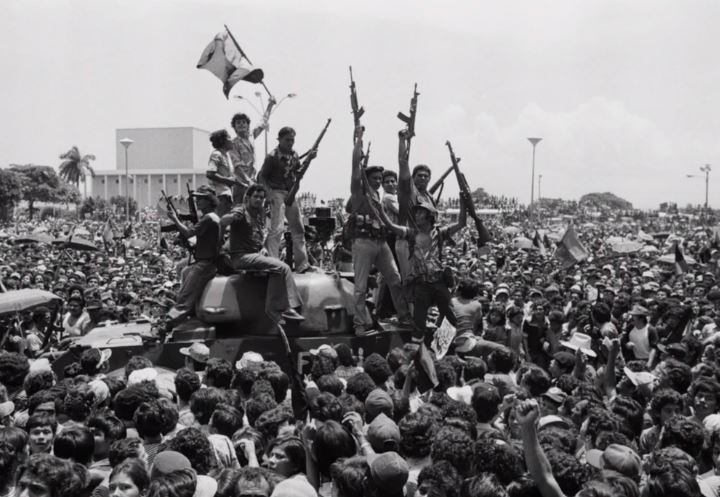
During their rule in the 1980s, the Sandinista government was brutal in committing human rights violations against opponents and vulnerable groups in Nicaragua, leading to widespread condemnation from international human rights groups at the time.
Hundreds of thousands of dissidents were abducted and presumed killed. The military and security forces were accused of assassinations of political opponents and indigenous groups. Arbitrary detention and imprisonment of opposition voices and protesters became the norm, and prisoners were tortured using beatings, electric shocks, endured psychological abuse. To preserve their one-party authoritarian rule, the Sandinistas wiped out any chance at an opposition.
The Sandinista National Liberation Front was the sole legal party, competing parties were banned. It controlled the Electoral Council, purged the judiciary and legislature of opposition, and turned elections into a farce, with subservient organs and falsifications ensuring Sandinista “victories.” On top of that, the Sandinistas cracked down on independent media outlets and anti-government marches and protests. Tens of thousands of indigenous communities, particularly on the Atlantic Coast, were forcibly displaced, thus leading to their destruction.
The repression and abuses prompted some indigenous groups and democrats to take up arms. However, the Sandinistas never saw any punishment for their crimes.
As Nicaragua was transitioning to democracy in the early 1990s after years of authoritarian rule under the Sandinistas and civil war with the US-backed Contras, negotiations preceded the 1991 elections to ensure a peaceful transfer of power.
There were concerns about what would happen if the opposition won the elections. Was it going to pursue vengeance? Was it going to put all the Sandinistas into prison? Would there be retribution of the Sandinistas? So, a general amnesty was agreed to prevent prosecutions, in such a way that the new democratic authorities didn’t have any capacity to study any crime against humanity, crimes of war, that were perpetrated by either side.
For years, Nicaragua was seen as a success story; it was believed that the amnesty allowed for reconciliation and a peaceful transition to Violeta Chamorro’s new democratic government after the 1991 election.
“The whole idea that an amnesty could serve for reconciliation was vogue at the time. It was kind of an innovative idea. Many other elements of transitional justice were not that popular, and the pursuit of justice was seen as a bottleneck for reconciliation.
However, the Nicaraguan case proves that it was the wrong path, precisely because Ortega and many of his perpetrators came back into power to commit the same crimes that they were committing in the 1980s. They never had accountability because they were never charged, and had a clean slate to repeat exactly what they did before. Now, Nicaragua, has become a new version of North Korea,” Mr. Maradiago says.
Now, as Nicaragua shut down all the independent organizations, including charities that cared for vulnerable populations, over 1.5 million Nicaraguans who receive direct services, cleaning water, education services, humanitarian aid from them are left unattended. A case in point is the Fabretto Children’s Foundation, which had provided education for 50,000 students until being shuttered. The Red Cross was not only shut down but absorbed by the state.
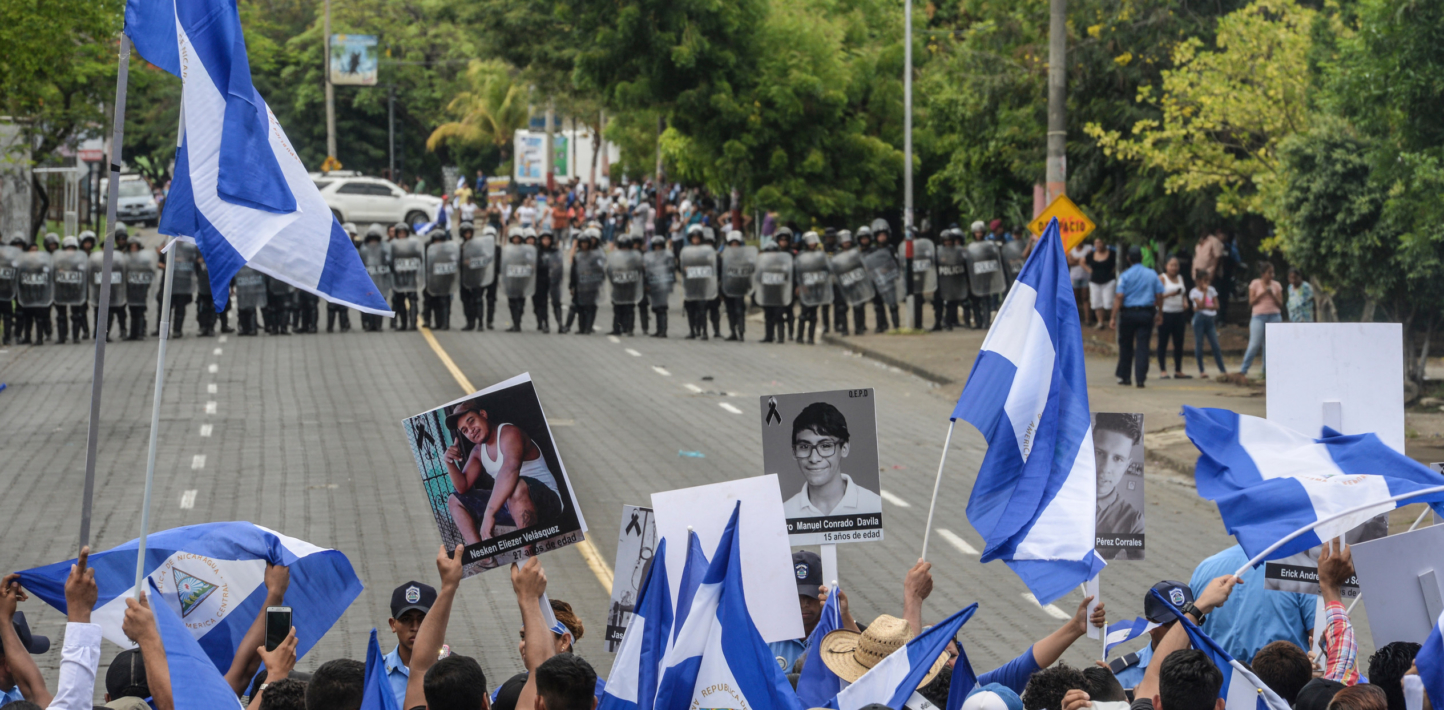
“It’s the only country in the world where this has happened. That is the direct result of a lack of accountability.
It’s a tough lesson to learn, and the world needs to know that any type of post-conflict reconstruction, any type of process of democratic transition has to have justice and accountability as a fundamental premise of peace-building,” Felix Maradiago stresses, noting this is important for Ukraine to keep in mind as it seeks to reintegrate Crimea and Donbas, occupied areas where Russian-abetted forces are also accused of similar human rights violations.
Related:
This post was originally published on this site be sure to check out more of their content.




